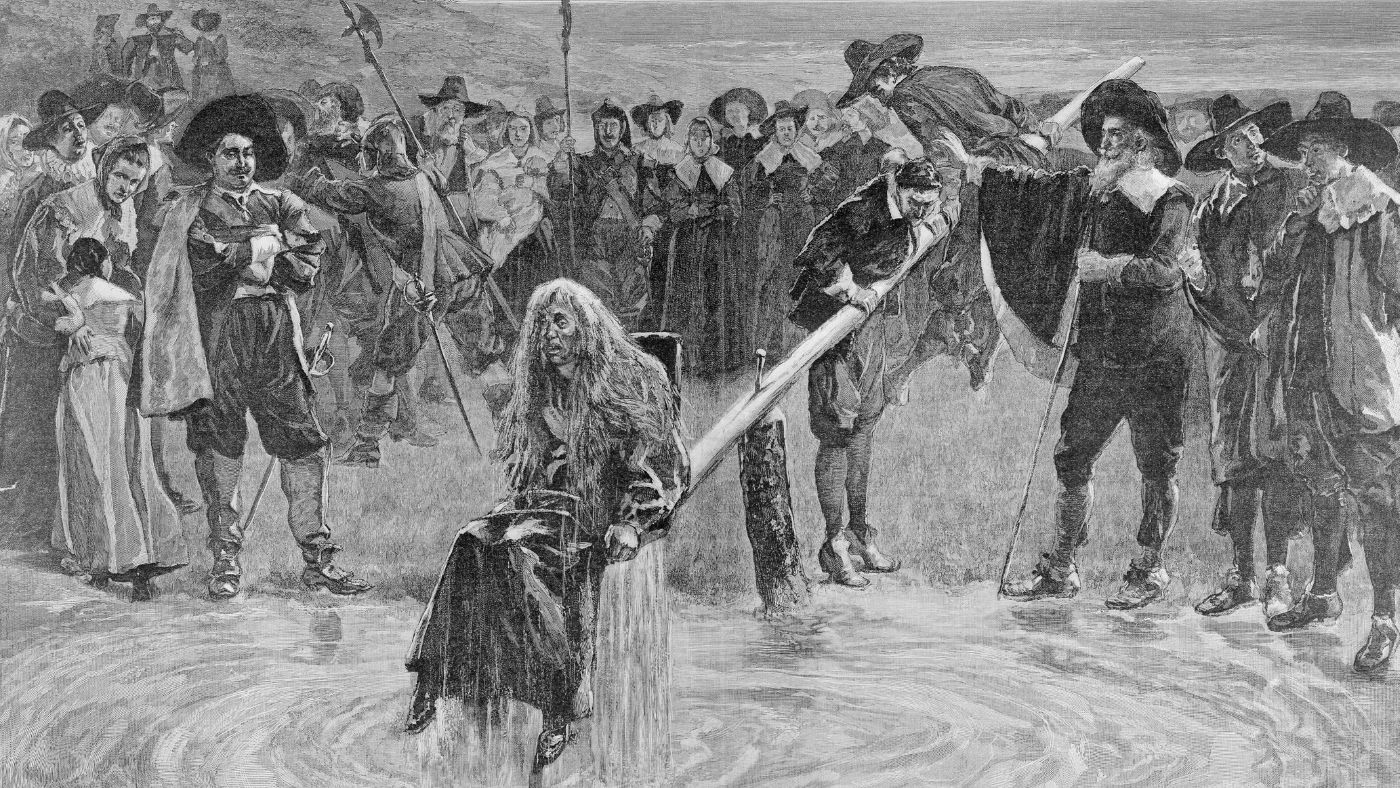Why Connecticut is seeking justice for convicted witches
Scores of people tried for witchcraft in the 1600s may now get posthumous absolution

A free daily email with the biggest news stories of the day – and the best features from TheWeek.com
You are now subscribed
Your newsletter sign-up was successful
The names of people accused of witchcraft more than 350 years ago in colonial Connecticut may be cleared at last following a long-running campaign by their descendants and lawmakers.
The state’s judiciary committee is considering “wiping the slate clean” after hearing testimony last week about a House Joint Resolution that would exonerate those who were tried for witchcraft, said NBC Connecticut. Between 1647 and 1697, at least 34 people were accused, of whom 11 – nine women and two men – were hanged.
Addressing the public hearing, state representative Jane Garibay, who introduced the resolution, said: “These were not witches. They were people, women who were executed for electing to wear certain clothing or being too assertive.”
The Week
Escape your echo chamber. Get the facts behind the news, plus analysis from multiple perspectives.

Sign up for The Week's Free Newsletters
From our morning news briefing to a weekly Good News Newsletter, get the best of The Week delivered directly to your inbox.
From our morning news briefing to a weekly Good News Newsletter, get the best of The Week delivered directly to your inbox.
Along with murder, kidnapping and treason, witchcraft was among a list of 12 capital crimes adopted by colonial Connecticut in 1642. Five years later, a mother-of-once called Alse Young became the first person recorded to have been executed for witchcraft in colonial America. But now, said The Economist, “her absolution may be nigh”.
Allegations of witchcraft “could result from things like contracting an illness, having a crop failure or experiencing a marital dispute”, said The New York Times. “Women were the most often accused, and a single witness could be enough to accuse someone.”
Not everyone agrees with the reprieves currently being considered. Pointing out that the trials took place while Connecticut was under British rule, Republican state senator John Kissel said: “I’m concerned about the path we are taking if we have to go and redress every perceived wrong in our history.”
There is precedent for the historical redress, however. Two years ago, a class of schoolchildren in North Andover, Massachusetts, “led an effort that resulted in the exoneration of a woman who had been accused of witchcraft during the Salem Witch Trials”, said The New York Times. “Now it’s Connecticut’s turn to atone.”
A free daily email with the biggest news stories of the day – and the best features from TheWeek.com
Arion McNicoll is a freelance writer at The Week Digital and was previously the UK website’s editor. He has also held senior editorial roles at CNN, The Times and The Sunday Times. Along with his writing work, he co-hosts “Today in History with The Retrospectors”, Rethink Audio’s flagship daily podcast, and is a regular panellist (and occasional stand-in host) on “The Week Unwrapped”. He is also a judge for The Publisher Podcast Awards.